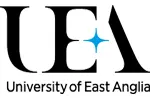

the United Kingdom
University of East Anglia (UEA)| The award | How you will study | Study duration | Course start | Domestic course fees | International course fees |
|---|---|---|---|---|---|
| GDip | Full-time | find out | find out | find out | find out |
The Graduate Diploma in Chemical Sciences is designed for students whose first degree does not fulfil the requirements for direct entry to further graduate study, such as an MSc or PhD in Chemistry. The course is ideal for those wishing to pursue a career in the chemical, pharmaceutical, agricultural, environmental, electronic or aerospace sectors.
Study
You will have the opportunity to study organic, inorganic, physical, analytical, and biological chemistry modules within UEA's School of Chemistry, with its consistent record of training graduate students. The modules available are drawn from the School's extensive undergraduate teaching programme. Content is tailored individually, allowing students to build on their previous chemistry background in preparation for further study.
Structure
The Graduate Diploma course is a combination of lecture, laboratory and project modules. Students typically take 5 to 6 tested general and advanced level lecture courses, (some with associated practical training) and often have the opportunity to join one of the internationally recognised research teams in the School of Chemistry to undertake their original research project.
Teaching
A close relationship with other UEA Science Schools and the institutes of the Norwich Research Park provides plenty of research opportunities in food and plant related sciences, health, chemical and structural biology, bioanalysis and biotechnology.
Employability
Chemical scientists are in growing demand in many industries including the chemical, pharmaceutical, agricultural, environmental, electronics and aerospace sectors. The Graduate Diploma will provide you with a wealth of transferable skills that you can apply directly to a career or build upon in further graduate study. Students on this course will develop excellent professional skills by training in problem solving, numeracy, communication, creativity, team work, time management and in depth data analysis.
Below are some suggested courses at other providers that you may also be interested in:
Molecular Simulations of Weak Polyelectrolytes in Semidilute Regime PhD
Faculty of Science, Charles University
Find out moreConsider a Foundation or Pathway course at University of East Anglia (UEA) to prepare for your chosen course:
If you do not meet the entry requirements for this course then consider one of these courses from another institution:
There are 413 other courses listed from University of East Anglia (UEA). A selection of these are displayed below:
Adult Literacy, Lifelong Learning and Development: International Perspectives MA
University of East Anglia (UEA)
Find out moreFind out more about studying in the United Kingdom